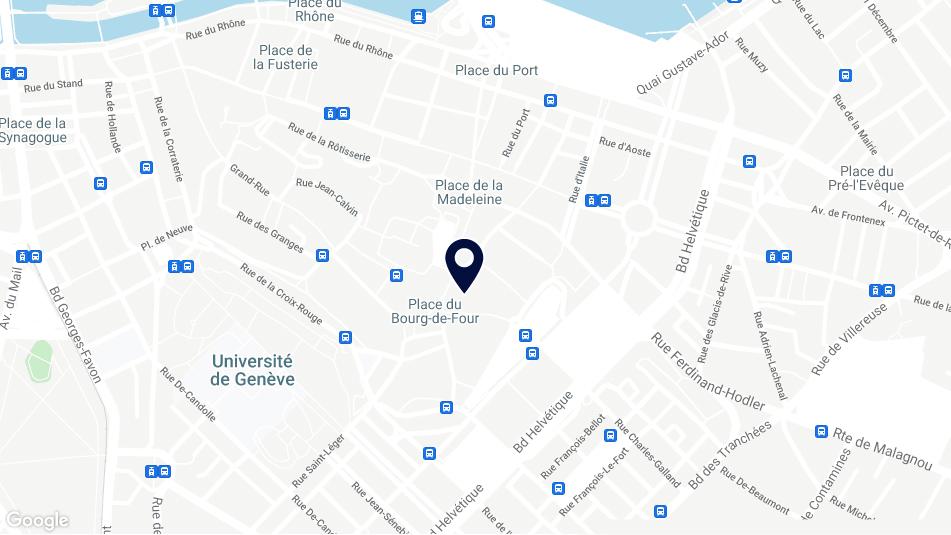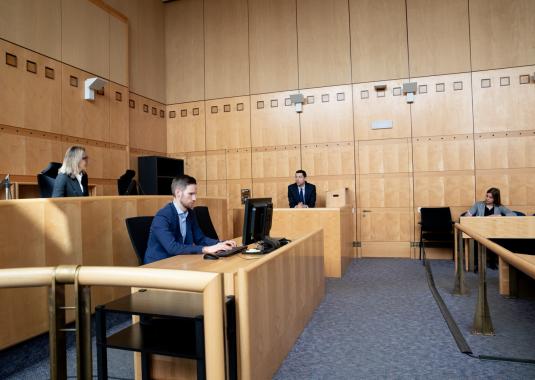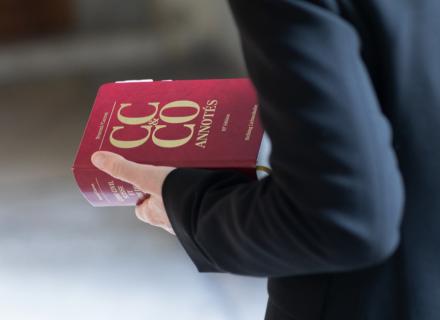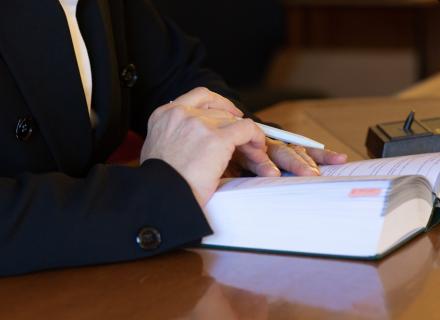Contacts
Address
Contact details
Mailing address
Greffe de l'assistance juridique
Case postale 3901
1211 Genève 3
Presidency and directorate
Mrs. Joëlle COTTIER
Vice-president of the Tribunal civil
Mrs. Valérie HENKE BLATTNER
Director
Competences and activities
Legal aid is a partial or total payment of lawyer's fees and legal costs for those who do not have the necessary means to pay them.
It constitutes a debt that the beneficiary must then reimburse to the Canton as soon as he/ she is in a position to do so and it can be claimed by the State within 10 years after completion of the trial.
This aid is subject to conditions and it is the presidency of the Tribunal Civil, more precisely the vice-president of the Tribunal de première instance, in collaboration with the Greffe de l'assistance juridique who rules, inter alia, on the granting of this aid in civil and administrative proceedings.
The competences are shared out as follows:
The presidency of the Tribunal Civil:
- Issues decisions on legal aid (granting, refusal or withdrawal).
- Formally appoints lawyers (named in application or appointed under the legal aid system) to defend the interests of persons receiving aid and rules on lawyers change requests.
- Revokes legal aid, in particular when the financial situation of a beneficiary person improves or when the latter has shown a lack of transparency about his/her situation.
- Orders total or partial reimbursement of the advances paid by the Canton as part of legal aid.
- Decides on applications, filed by the lawyer appointed under the legal aid system, for reconsideration of the remuneration decision taken by the Office.
The Greffe de l'assistance juridique:
- Examines the requests: management, analysis, follow-up of the files.
- Issues decisions on the remuneration of lawyers appointed under the legal aid system.
It is also possible to receive legal aid in criminal proceedings.
Organization
The Greffe de l'assistance juridique is the sole interlocutor for users on all matters related to legal aid. It analyses and coordinates the administrative follow-up of the applications, in close coordination with the presidency of the Tribunal Civil.
The Office handles all the applications of the following proceedings:
- Civil: Tribunal de première instance, Tribunal des baux et loyers, Tribunal de protection de l'adulte et de l'enfant, Tribunal des prud'hommes, Cour civile
- Administrative: Tribunal administratif de première instance, Cour de droit public
The office does not provide legal advice.
Proceeding
The request for legal aid involves several steps:
- Fill in the application form
- Send the application by post, accompanied by the required supporting documents, to the Greffe de l'assistance juridique (or hand-delivered to the registry of the Tribunal Civil or the Greffe universel)
- Provide additional information if requested by the Greffe de l'assistance juridique
- Receive the decision of approval or refusal
- Possibility of appealing against the decision
Application forms
Below you will find the forms and instructions needed to apply for legal aid.
Questions/answers
In principle, yes, provided that proceedings take place before the Geneva instances.
You can find all the information concerning the documents to be included with your application and the whole proceedings in the thematic guide Legal aid.
The granting of the legal aid has, in principle, no retroactive effect and, save for some exceptions, only your expenses incurred from the time you file your request for aid, are covered by the Canton.
You may challenge a decision to refuse, withdraw or partially grant legal aid in writing with the presidency of the Cour de justice, within the period specified in the decision (10 days or 30 days, depending on the matter concerned).
Yes, a lawyer will be assigned to you under the legal aid system if aid is granted.
In principle, yes: legal aid which may be either complete or partial, is a reimbursable advance by the beneficiary, through monthly payments due from the beginning of the proceedings, in certain cases.
At the end of the proceedings for which legal aid has been granted and depending on your situation, you may be required to reimburse to the Canton of Geneva all or part of the amounts advanced to you (legal costs) and the amount paid by the Canton (allowances paid to your legal counsel), after deduction of any monthly instalments already paid.
If you were paying a monthly contribution and your personal and financial situation has not changed, the said contribution is due up to a maximum of 60 monthly payments (5 years), whether or not the proceedings have been completed.
The Canton’s claim is prescribed after 10 years from the end of the proceedings for which the legal aid was granted. The financial services of the Judiciary Power are in charge of the payment of the owed amounts.
Yes, provided that the parent's financial situation is taken into account.
The mission of the Judiciary Power is to render justice impartially and to ensure the equal and fair application of the laws to all.
Therefore, it does not provide legal advice. However, you can contact a legal advice service, a trade union or a legal professional (for example, a lawyer) for legal advice in Geneva.
In criminal proceedings, the accused may be subject to the special regime of the duty defence lawyer. The magistrate in charge of the proceedings will inform you about this. Under certain conditions, the private claimant may also be entitled to legal aid.






